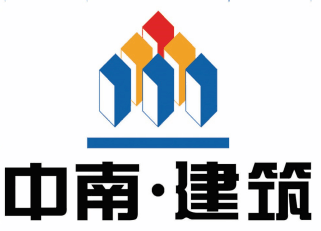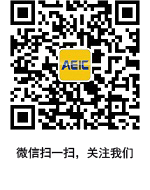The previous First International Conference on Advances in Materials, Mechatronics and Civil Engineering (ICAMMCE 2016) was taken place on July 23-24, 2016 in Guangzhou, China. All accepted papers were published in Advances in Engineering Research (ISSN 2352-5401).
The previous second International Conference on Advances in Materials, Mechatronics and Civil Engineering (ICAMMCE 2017) was taken place on January 19-20, 2017 in Guangzhou, China. All accepted papers were published in Advances in Engineering Research (ISSN 2352-5401).
The previous third International Conference on Advances in Materials, Mechatronics and Civil Engineering (ICAMMCE 2018) was taken place on April 13-15, 2018 in Hangzhou, China.ICAMMCE2018 is Organized by AEIC Academic Exchange Information Centre, Jiangsu Zhongnan Construction Group Co.,Ltd.as a supporting unit.
All accepted papers were published in Advances in Engineering Research (ISSN 2352-5401).
The 2019 4th International Conference on Advances in Materials, Mechatronics and Civil Engineering (ICAMMCE 2019) will be held on February 22-24, 2019 in Shenzhen, China. ICAMMCE2019 is Organized by AEIC Academic Exchange Information Centre.ICAMMCE 2019 is to bring together innovative academics and industrial experts in the field of materials, mechatronics and civil engineering to a common forum. The primary goal of the conference is to promote research and developmental activities in materials, mechatronics and civil engineering and another goal is to promote scientific information interchange between researchers, developers, engineers, students, and practitioners working all around the world. The conference will be held every year to make it an ideal platform for people to share views and experiences in materials, mechatronics and civil engineering and related
keynote Speakers:

Prof. Datin. Sr. Dr .Hamimah Adnan
Univeristi Teknologi MARA,Malaysia
报告题目/Title:
Developing a Framework for successful claim Management in Malaysian Construction Industry
摘要/ Abstract:
Construction contracts are rarely perfect, and claims for time extensions and additional costs often have to be made by one party on another. The extensively increasing number of construction claims indicates the need for the implementation of an effective construction claim management. This paper aims to identify the rationale behind the claim management in the Malaysian construction industry. Triangulation methodology was used whereby both quantitative and qualitative methodology which involved questionnaires and interviews from both the contractors’ and quantity surveyor consultants’ point of view. The stages are claim identification, claim notifications, claim examination, claim documentation, claim presentation and claim negotiation. The findings highlight on the three (3) critical claim stages that need to be focused by the construction industry practitioners. There are claim identification, claim notification and claim documentation. The need for a good documentation and record keeping system with a competent site staff that can recognize a claim during project execution is very critical. Keeping appropriate project information is an essential part of project monitoring and reporting. It also appears that a standard and transparent procedure should be put in place whereby contractors would be able to follow in order to properly prepare the claim. In addition, staff awareness, training in how to document and submit a well-supported claim, and negotiations with clients are becoming a necessity. This research has successfully investigated the current practices in the industry in dealing with construction claims, common disputed issues associated with construction claims, and the reasons for the failure of such claims. The strategies towards achieving a successful claim have been identified as being comprised of elements that are essential for inclusion in claims and the initiatives to be taken by the construction industry practitioners to reduce the likelihood of failure of such claims.
Abu Zahrim Yaser
(Deputy Dean (Research And Innovation))
Universiti Malaysia Sabah,Malaysia
报告题目/Title:
Towards Efficient Waste Management for Campus Sustainability
摘要/ Abstract:
The campus is a symbol of idealism, highly intelligence and is why its community should have growth mindsets that can improve environmental sustainability; which not only adapts and reacts to the pollutions but that can generate profits from it e.g. compost or fuel from the generation of food waste. It is undeniable that the general public has high expectation and trust in the capabilities of the campus community. Therefore, the campus community can be the best example of implementing an environmental sustainability agenda. In this study, composition of waste produce from faculty cafeteria was evaluated and then composting of food waste with leaves was carried out using turned-passive aerated composter. Maximum reduction of ~46% from initial mixture was obtained. Growing of jasmine tree using the compost also has been conducted successfully.














